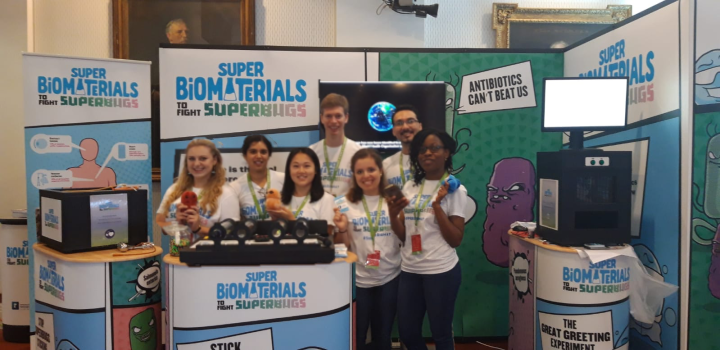In the summer of 2019, the Next Generation Biomaterials Discovery grant were busy finalising their exhibit for the Royal Society Summer Science Exhibition, a week-long event held in central London. As part of the fine tuning, they recruited the help of local Long Eaton School, to help assess the effectiveness and impact of the activities and information contained within the exhibit. Before the demonstrations began, the students were surveyed including questions regarding their attitudes and aspirations in science, as well as their knowledge of antibiotics, bacterial biofilms and materials. This same survey was then repeated afterwards, and then again 3 months after to explore whether there was any lasting impact.
Even 3 months after the initial demonstration to the students at Long Eaton school still showed an improvement in their knowledge of biofilms, bacteria, and medical devices, as they retained the information shared during the trial exhibit. Answers to questions on student’s aspirations and interest in science also showed a positive shift, but not to the same significant extent.

Bar charts showing student responses before, after and 3 months after the exhibition on questions relating to bacteria.

Bar charts highlighting science aspirations and interests before, after and 3 months after the exhibition.
After the trial at Long Eaton School, the grant welcomed Lilian Greenwood, the MP for Nottingham South where the University of Nottingham is situated, to the Exhibit in London. She participated in the activities and interactive demonstrations, as well as attending the VIP evening soiree.
The work displayed at the exhibit also gained traction online and in media, with the grant being highlighted on the Royal Society's Twitter and Instagram, as well as published articles in The Times and The Telegraph. The grant was also featured in a BBC Health Check segment on the radio with an interview with Dr Kim Hardie.

Posted on Tuesday 16th June 2020